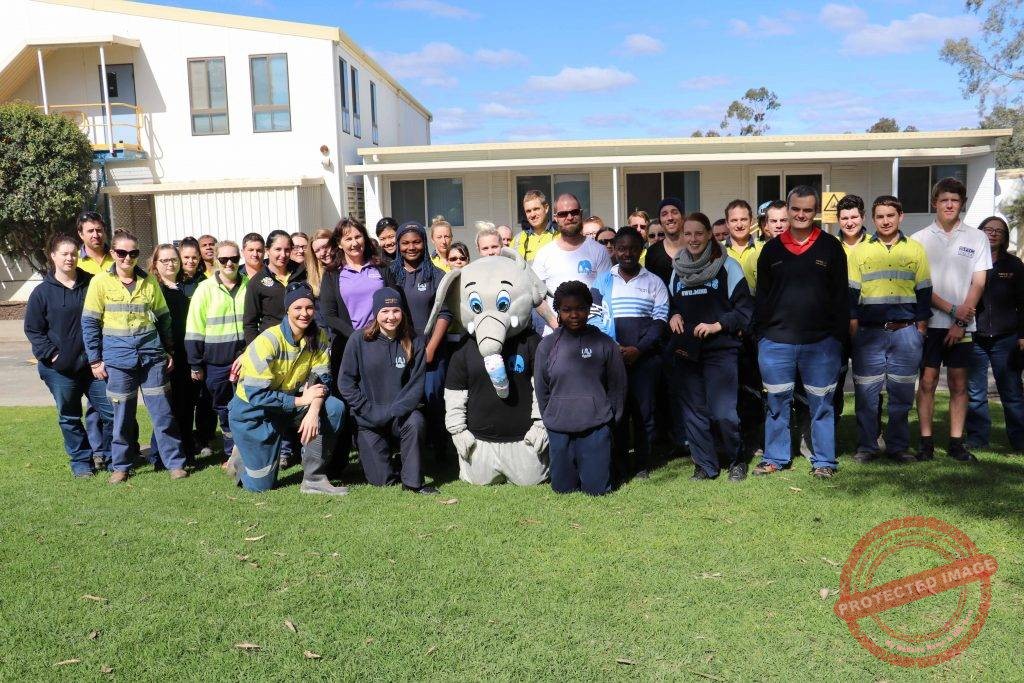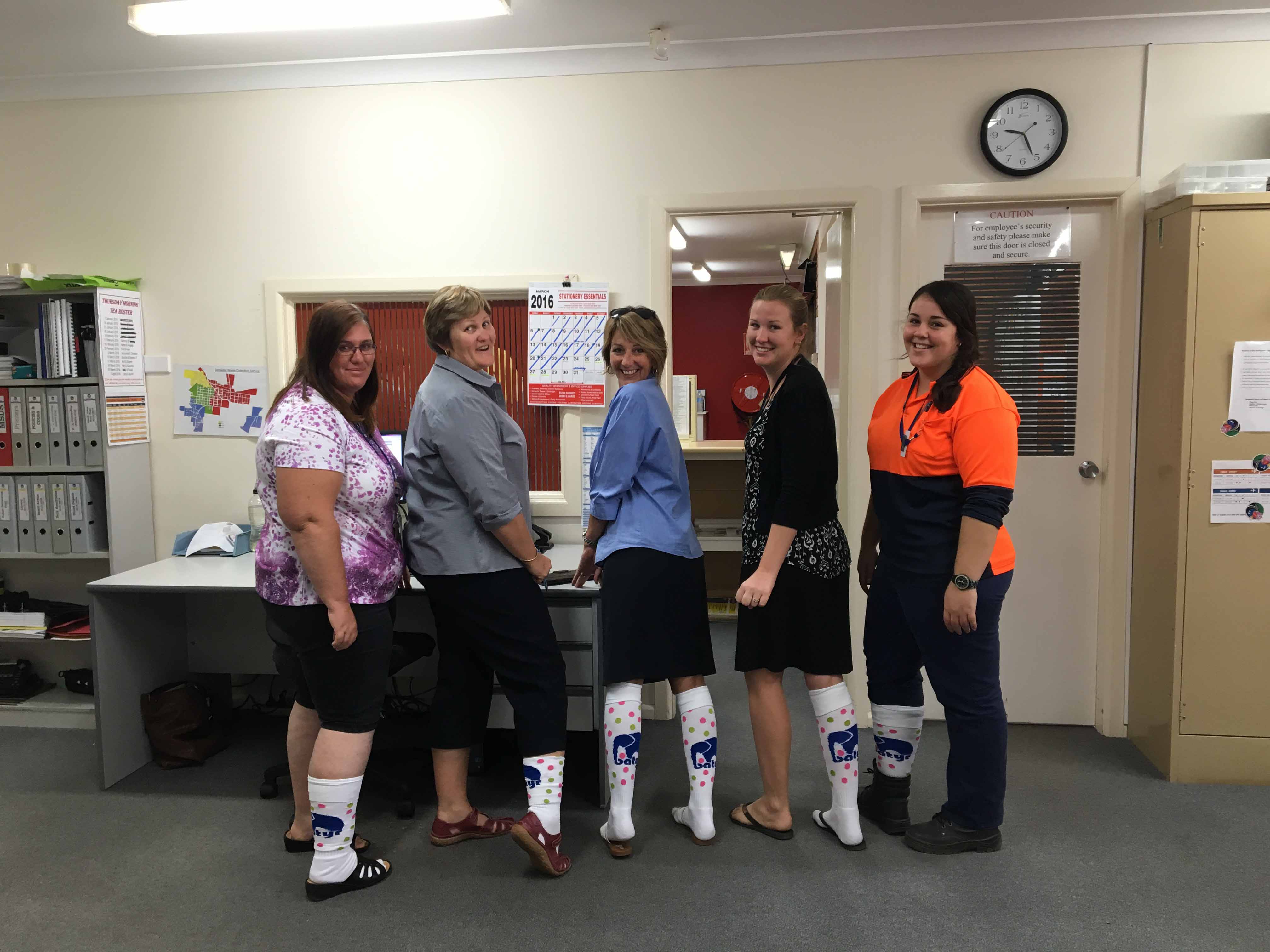
A group of young workers aged 18-30 at Peak Gold Mines got talking with an Australian sports star, a CEO and a local miner about good mental health practices on site at the mine last week.
Batyr CEO Sam Refshauge, Australian Diamonds netballer and Baytr ambassador Sharni Layton and local CSA miner and Batyr volunteer Ben Hewlett addressed the group on the topic of mental health and the stigma that surrounds it.
Mr Refshauge said the session looked at mental health awareness and the statistics of mental health issues across Australia.
“Then more specifically we looked at the stats across the mining industry and the impact it’s having on people in the industry,” Mr Refshauge said.
Mr Hewlett, who has been through Batyr’s speaker training program, Being Herd, shared his experiences with the group.
“The sharing of a lived experience helps the speaker to be able to connect to the audience around the topic,” Mr Refshauge said.
“It really focusses on ways which all of the guys and girls can best look after their own mental health and look after their mates as well.”
He said the session covered Batyr’s five tips: looking out for changes in behaviour; having the conversation; listening up when someone talks to you; reaching out for support; and then taking charge of your own mental health and well being.
A number of Peak’s managers also attended the session to get some tips on how they can best support their younger workers.
Mr Refshauge said while the majority of Batyr’s work has been carried out in high school and universities, they have found that more and more workplaces, organisations and mine sites are having the same sort of issues.
“We are trying to take back what we’ve learnt from working with other young people to making it relevant in the work place.
“The message is still the same, making people aware that it’s okay to not be okay, that help is out there, that they are not alone if they are going through tough times and that we’re all ready and willing to start having conversations and support each other.”
Peak Gold Mines has been a supporter of the Batyr program since it came to Cobar almost two years ago.
Susan Ham, Peak’s human resources health and safety manager said they were pleased to be able to assist Batyr with the programs they were running in Cobar.
“More importantly we’re able to publicise to the workforce the programs that are available to them, to try and reduce the stigma around mental illness because it effects everyone in some way, whether it’s themselves or partners or children,” Mrs Ham said.
She said the session also fit in very well with the mine’s ‘Fit for Gold’ program which aims at improving employees’ fitness and health.

